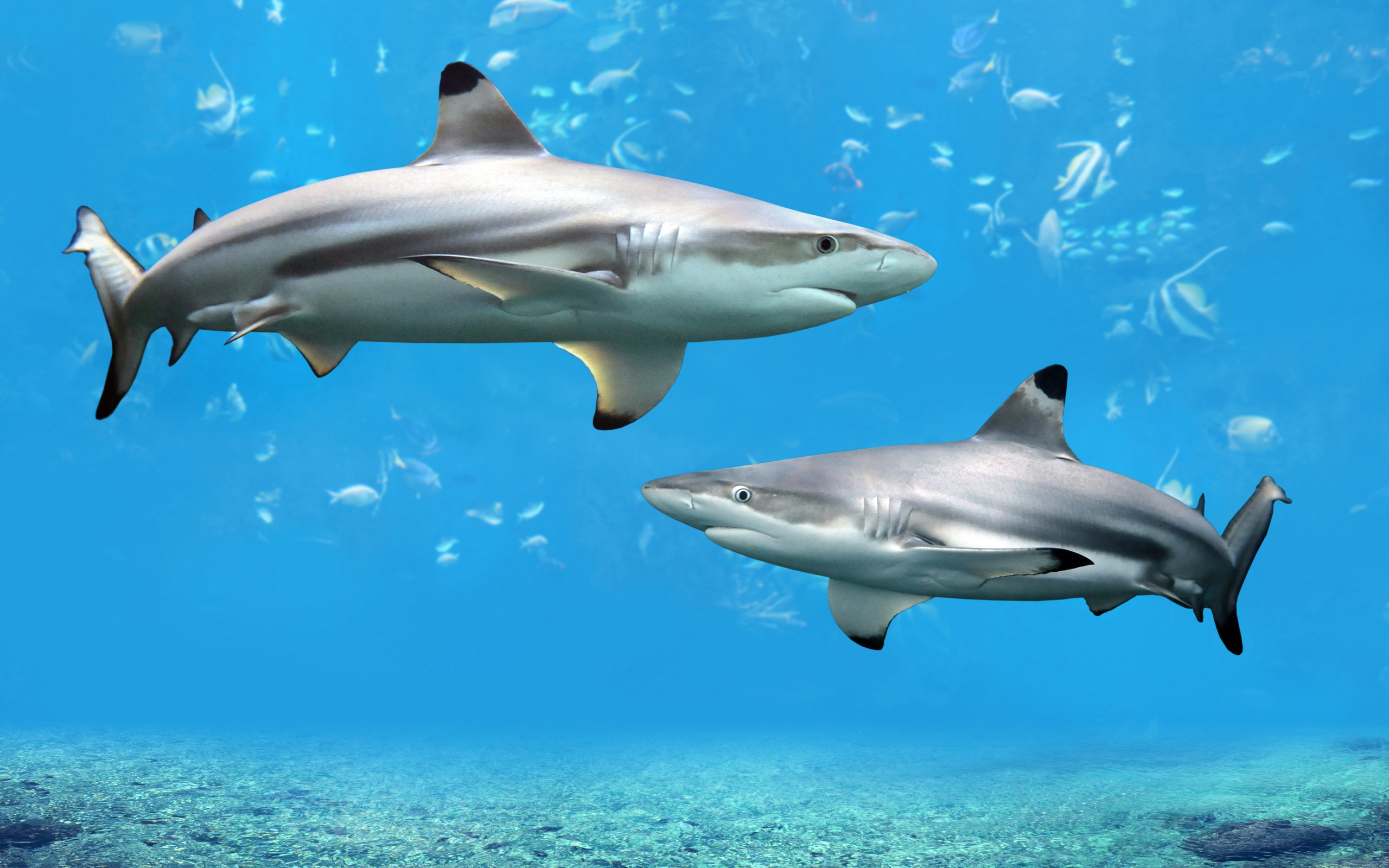The Blacktip Reef Shark (Carcharhinus melanopterus) is a small species of shark that is commonly found in shallow tropical waters of the Indian and Pacific Oceans. Known for their distinctive black-tipped fins, these sharks are important predators in reef ecosystems and play a crucial role in maintaining the balance of marine food webs.
Physical Characteristics
The Blacktip Reef Shark typically reaches a length of 4-5 feet, with females being slightly larger than males. They are slender and streamlined, with a grayish-brown body and a white belly. Their most distinctive feature is their black-tipped fins, which include the dorsal fin, pectoral fins, and caudal fin.
Habitat and Range
Blacktip Reef Sharks are found in shallow tropical waters, typically in the vicinity of coral reefs. They are found throughout the Indian and Pacific Oceans, including in the Red Sea, the Maldives, and the Great Barrier Reef. They prefer water temperatures between 70-80°F and are known to migrate to different locations in search of prey.
Behavior and Diet
Blacktip Reef Sharks are opportunistic predators, feeding on a variety of small fish, squid, and crustaceans. They are active swimmers, constantly on the move and using their sharp senses to locate prey. They are known to hunt alone or in small groups and are most active at dawn and dusk.
Reproduction
Blacktip Reef Sharks reach sexual maturity at around 5-6 years of age. Females give birth to live young after a gestation period of around 10-12 months. Litters can range from 2-6 pups, with the pups being around 20 inches long at birth. The pups are immediately independent and must fend for themselves.
Conservation Status
The Blacktip Reef Shark is currently listed as "Near Threatened" by the International Union for Conservation of Nature (IUCN). While they are not directly targeted by commercial fisheries, they are often caught as bycatch in other fisheries. Habitat destruction and degradation, as well as climate change, are also threats to the species. Conservation efforts to protect coral reefs and reduce bycatch can help to ensure the long-term survival of the Blacktip Reef Shark.
Conclusion
The Blacktip Reef Shark is a fascinating and important species in coral reef ecosystems. Their distinctive black-tipped fins and active hunting behavior make them a popular attraction for divers and snorkelers. However, like many shark species, they face a variety of threats, including bycatch and habitat loss. Protecting and preserving their habitat is essential for ensuring the survival of this important predator in the marine ecosystem.


Comments
Post a Comment